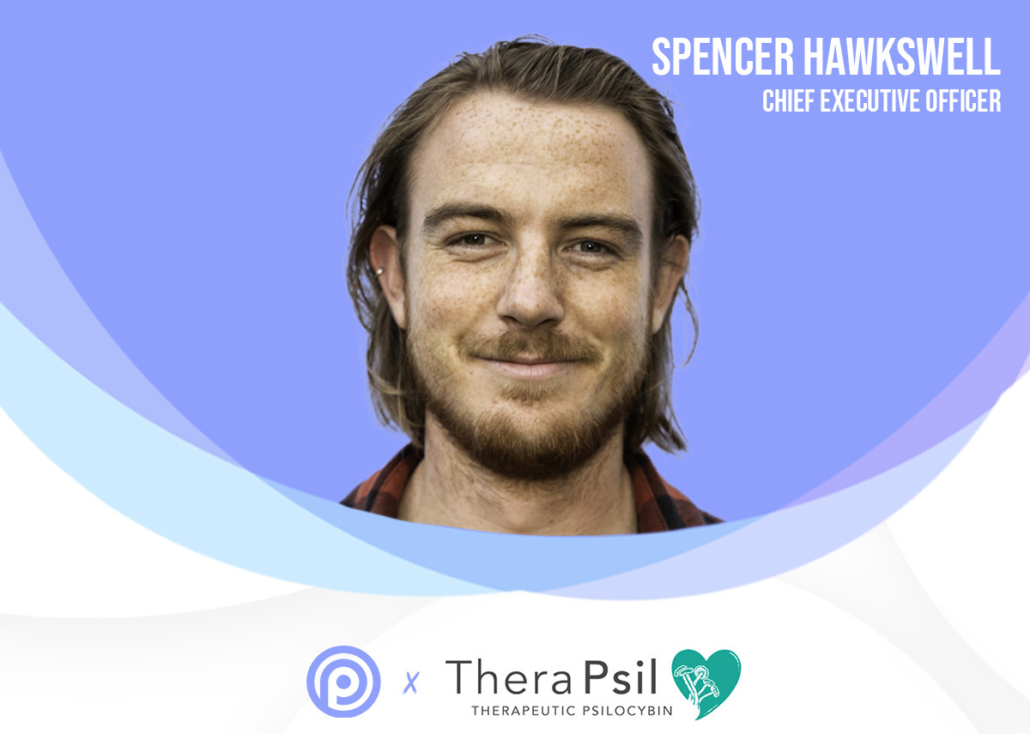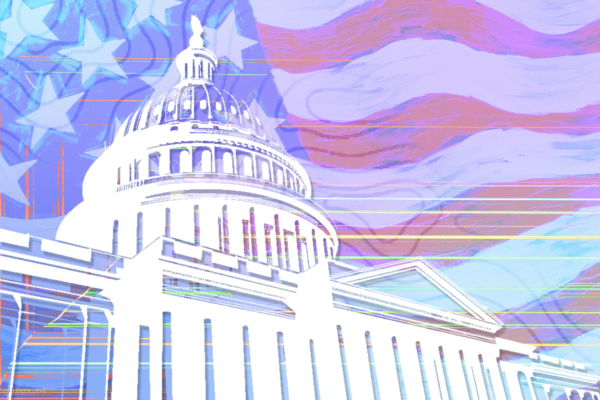
A non-profit advocacy group founded to secure access to therapeutic psilocybin for Canadian patients experiencing end-of-life distress is now fighting for safe and equal access to psilocybin for all Canadians.
TheraPsil CEO Spencer Hawkswell told the Psychedelic Spotlight podcast this week that over the coming months the group would continue to campaign and work closely with the government, health authorities, and organizations such as MAPS, MAPS Canada, and the Canadian Psychedelic Association, to see access to the drug improved. “We are going to be lobbying hard to get those regulations set into law to make sure that Canadians can realize their rights to psilocybin,” Hawkswell told podcast host David Flores.
TheraPsil was founded in 2020 in Victoria, British Columbia, to support Canadian patients in need of psilocybin psychotherapy. Hawkswell said the non-profit has a four pillar mission: access, professional education of healthcare practitioners, public education about the merits and limitations of psilocybin, and research. “Bringing these four pillars together creates the foundation for psilocybin access here in Canada,” he said.
The group has been successful in securing a number of exemptions under Section 56 of Canada’s Controlled Drugs and Substances Act – which allows the Federal Health Minister to provide access to controlled substances on a case-by-case basis – for both patients experiencing end-of-life distress as a result of a terminal diagnosis to access therapeutic psilocybin and for healthcare professionals to administer the treatments. To date, almost all of the exemptions have been granted to individuals who have or had cancer, and recently a patient with ALS (also known as Lou Gehrig’s Disease) was granted an exemption.
Research by UCLA, NYU, and Johns Hopkins University has shown that therapeutic psilocybin is effective in reducing patients’ end-of-life distress. “There are clinically significant decreases in self-rated and clinician-rated hopelessness, depression, and anxiety. 80% of patients sustained this at a six-month follow-up. But regardless of whether or not it is more effective than other treatments, this is a person on their deathbed wanting to try it, and they should have that right,” Hawkswell explained.
“Even before a lot of people get access to the psilocybin, by just doing the prework such as the therapy and even just working with our team members, it’s amazing to see the changes in people’s faces and their attitudes when they realize there may be a solution.”
However, Hawkswell said that TheraPsil very quickly began talking about the need for regulations to provide access to psilocybin, instead of the Section 56 exemption process. “That’s what we want – safe access and a system that gives each patient equal opportunity to get access,” he said.
“The truth is right now some patients wait seven or 14 days, and some are waiting for five months. These are patients with a cancer diagnosis. People are running out of time.”
Hawkswell added that it was not appropriate for patients in need of medicine to have to reach out to the country’s top elected health official. “It’s a half-assed solution, this Section 56 process. There’s an opportunity here to create awareness and funnel resources and innovation into mental illness,” he said.
“People who get the most access [to psilocybin] are those with a terminal illness – a physical disability that is easy for us to define – yet the mental illnesses are not important enough or not as urgent. Both should be dealt with and we should treat them both as important.”
Looking ahead, Hawkswell said TheraPsil would continue its push for regulation and sharing the stories of patients who have experienced the benefits of psilocybin psychotherapy. On July 26, the group launched its biggest advocacy campaign to date and is raising funds to support its work.
“It’s not a question of if regulations are coming, but when and what they are going to be. We’ve hit a critical mass, and the government knows that,” Hawkswell concluded.
Listen to the entire interview below.






